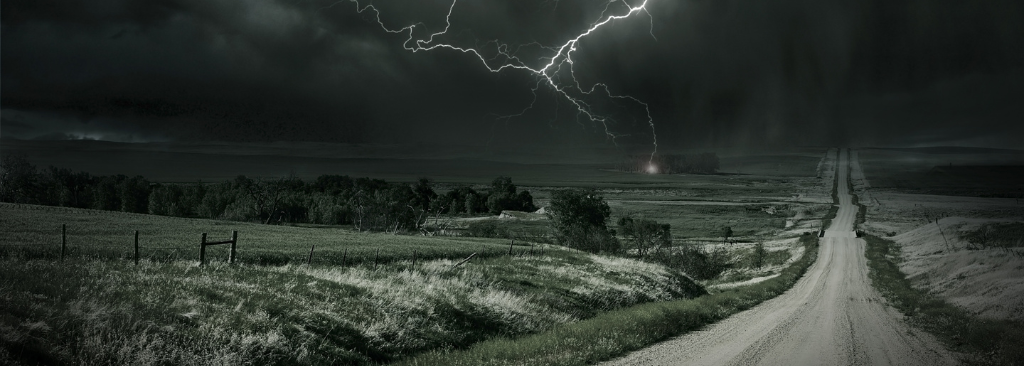We all know what it’s like to feel on edge, have our mind race with worrying thoughts, and find our bodies (gut, heartrate, breathing, etc) sending us the message that something is amiss. Many experiences in life leave us feeling this way. And often this response is entirely appropriate.
Our minds and bodies are designed to react to threatening situations and without these kinds of responses which ready us for action, our survival might be at risk. But sometimes they occur when we are in no real danger. And the accompanying cocktail of thoughts, feelings and bodily responses are unwelcome and interfere with day-to-day life. In any twelve-month period, more than 1 in 6 Australians1 will experience symptoms like these at a level that causes significant distress and has a major impact on everyday relationships and responsibilities. They have what is known as an anxiety disorder.
Anxiety is not pleasant for anybody. But for Christian believers, an added dimension is often at play. Both Jesus (Matthew 6:25-34) and the apostle Paul (Philippians 4:6) advise us not to be anxious. Usually we hear or read, ‘Do not …,’ and sense a word of challenge or rebuke. The take home seems to be, your fears and worries will evaporate if you really trust God. But perhaps these verses are better read as gentle encouragements.
When we have a heavenly Father who provides for the birds of the air and the lilies of the field, we need not be anxious, because he values us even more. And what comfort is ours in knowing that the Lord is at hand and his peace will guard our hearts and minds in Christ Jesus. We have good reasons not to be anxious.

It’s also worth noting that sometimes it’s right to experience anxiety. I’ve already mentioned that anxiety helps us respond appropriately to danger. Similarly, our love and concern for others will sometimes evoke anxious feelings. For example, a parent will not be indifferent to a child’s risk-taking behaviour. And when those we care about experience significant difficulties, it’s natural to feel worried and anxious for them. This right and appropriate form of anxiety is on view in the New Testament. The apostle Paul speaks of ‘the daily pressure on me of my anxiety for all the churches’ (2 Corinthians 11:28). And he wants the body of Christ to share such concern for each other— ‘that the members may have the same care (literally: ‘anxiety’) for one another’ (1 Corinthians 12:25). We have good reasons to be anxious!2
Yet, whatever sense we make of the Bible’s teaching on anxiety, a feeling often lurks at the back of our minds that steadfast trust in our Lord Jesus Christ will surely keep us from highly anxious states. And if not, perhaps it’s a sign that something is deficient in our spiritual life. And that can lead to worrying about our worry or being anxious about being anxious. What light might we shed on this dilemma?
I would like to draw upon the insights of theologian, Matthew LaPine, from his book The Logic of the Body: Retrieving Theological Psychology. LaPine believes that it’s easy to fall into simplistic understandings of our emotional lives, and experiences like anxiety. He thinks this often occurs within contemporary Reformed evangelical theology. We tend, says LaPine, to opt for one of two dominant ‘stories’ to make sense of human emotion.
The first he calls ‘emotional voluntarism’. The word ‘voluntarism’ derives from a Latin word, voluntas, which refers to the human will, i.e., our ability to make choices and decisions. This perspective maintains that our emotions are largely under our control. Emotions are more a function of our thoughts and beliefs than anything taking place in our bodies. And because we are able to control our emotions, we can be held accountable for them. If anything problematic emerges in our emotional life (e.g. we are feeling very anxious), then we have the ability to bring that in check and, indeed, are duty bound to do so. By changing our thinking (e.g. repenting of false beliefs; trusting God more), we can change the way we feel. It’s easy to see how this viewpoint might create some angst for Christians with anxiety disorders. And if believers treat their anxiety as sin, and their attempts to repent of it fail, it will likely make them feel worse, and perhaps even more anxious.

According to LaPine, a second way to understand our emotional lives is the psychological view. The emphasis here is upon how little control we have of our emotional life. Anxiety is primarily a bodily response, something that happens in the brain and the nervous system. Anxiety activates the sympathetic nervous system which causes changes in blood pressure, heart rate, etc. Situations that evoke these physical responses tend to stick in our memory, which means that when we face a similar situation in the future, the same anxious feelings are repeated. From this psychological perspective, it’s inappropriate to label this anxious reaction as ‘sin’ when what’s happening in our bodies are automatic responses to processing that’s going on our brains that we are not even aware of.
LaPine maintains that neither of these viewpoints are adequate. Emotional voluntarism fails to recognise that anxiety is never merely something happening in our minds—it always involves the body. And this bodily dimension to our varying emotional states impacts our ability to fully control what we are feeling. The psychological view is also problematic. To take the Bible seriously is to recognise that trust in God does make a difference to the experience of anxiety. Note Psalm 46:1-2, ‘God is our strength and refuge; a very present help in trouble. Therefore, we will not fear, though the earth give way.’ Jesus’ and Paul’s encouragements not to be anxious fit with such a framework.
Of interest is where LaPine turns to find a way forward—to a giant of medieval theology, Thomas Aquinas. Aquinas wrote in the thirteenth century, nearly 800 years ago. But despite his ignorance of contemporary research findings in neuroscience and psychology, he drew upon a long tradition of careful observation of human behaviour that yielded significant insights into connections between our minds and our bodies.
For Aquinas, the either/or approaches mentioned above will not do. He acknowledged that the way we think impacts our emotional states. Our emotional life is not some irrational feature of our nature that is entirely out of our control. Thoughtful reflection can inform and direct the choices which bear upon our feeling states. At the same time, we can’t claim that such a shift comes easily. Aquinas integrates the body into his psychology, and he is aware that our bodies do things that impact us emotionally that lie beyond our control. As LaPine states, ‘The physiological aspect of his [Aquinas’s] psychology … qualifies the extent to which emotions (i.e., passions) are rational and voluntary’ (p. 43)

Although the psychological viewpoint described earlier is one-sided, contemporary psychological understanding is generally more nuanced, acknowledging a complex interplay between how we think, the way our bodies are functioning, and how we feel. Both nature and nurture play a role in the mind and body interactions that influence our emotional life. In terms of genetics, some of us are wired to be more prone to anxiety, and sometimes to anxiety in its more extreme and personally challenging forms. The fact that anxiety runs in some families is evidence of this genetic element. Similarly, events in our lives can make us more susceptible to anxiety. Our experiences lead to physiological responses in our bodies and those responses tend to stick—we are naturally habit-forming creatures. This is particularly evident in those experiencing a trauma response—their bodies, minds and emotions are doing things they have little control over. Researcher and therapist, Bessel van der Kolk, encapsulates this in the title of his book, The Body Keeps the Score.
So then, much of what Aquinas suggested long ago aligns with present-day thinking concerning emotional states. The complex interplay between our bodies and our psychological and spiritual make-up mean that our emotional responses are a knotty mixture of the voluntary and the involuntary. Where, then, does this leave us? Can we say anything helpful to those of us who are anxious about being anxious?
LaPine offers optimism mixed with compassion. He is confident that God in his grace can bring real change to those experiencing distressing emotional states. But he is fully aware that many factors are at play and that such shifts come slowly. His position is neither naïve nor overbearing. Those whose anxiety is the result of abuse, neglect or other difficult circumstances do not need to be further wounded by having a burden of emotional duty placed on their shoulders. Neither do those whose body naturally predisposes them to heightened states of anxiety. Due to human weakness, sin, and the reality of ongoing suffering as we await Christ’s return, all of us face difficulties and we will sometimes be stuck with some trying emotional states that will not easily budge.

How can the church help?
The church can be of real help here. LaPine longs to see us ‘ministering the nourishment of Christ to others’ in our life together as the body of Christ (p. 353). The gospel addresses feelings of guilt and shame in a way that lifts burdens rather than adding to them. Furthermore, he encourages God’s people to ‘minister the comfort of Christ by entering empathetically into the suffering of others’ (p. 355). We are those who listen with compassion and ‘weep with those who weep’ (Romans 12:15).
To offer such grace in word and deed can be empowering. When you’re down on yourself, hearing words that affirm your dignity, and being treated in a way that backs that up, can challenge some of the unhelpful messages we tell ourselves. In can encourage us to try different ways of thinking and acting rather than being stuck in patterns dominated by our anxiety.
We are not to demand that others make these changes. Nor are we critical when they struggle to do so. No, these are possibilities that emerge because God is at work through his word, his Spirit, and his people to offer us real assistance in times of need.
And when those of us who are anxious about being anxious find that our anxiety ramps up once again, and we feel wretched and that we have failed yet again, our God remains the one who is merciful and gracious, slow to anger, and abounding in steadfast love. We are safe in him, even when it doesn’t feel that way.
See also two very helpful articles on anxiety by Alison Courtney:
- ‘Understanding anxiety’ https://mentalhealthinstitute.org.au/anxiety/understanding-anxiety/
- ‘Treating anxiety and anxiety disorders’ https://mentalhealthinstitute.org.au/anxiety/treating-anxiety-and-anxiety-disorders/




